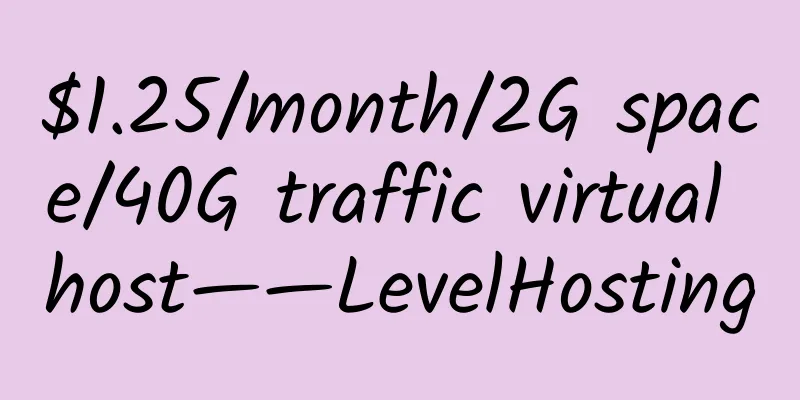|
Business Insider, an American technology blog, recently summarized the 10 most important companies in the field of cloud computing. They are:
No. 1. Amazon Amazon is undoubtedly the most important player in the cloud computing field because the company basically invented the IaaS (Infrastructure as a Service) market.
Amazon Cloud Computing offers a wide range of options, from cloud storage for a few pennies per month to rental of computer-enhanced drives for more than $5,000 per hour. Emerging startups such as Dropbox and Instagram are all driven by Amazon's cloud technology.
Amazon is now also truly entering the enterprise cloud computing market and providing more security features for its cloud services. At the same time, Amazon has also formed an enterprise customer sales team. Amazon's actions are to prevent its competitors VMware, Citrix and OpenStack from easily snatching enterprise customers from it.
It's hard to imagine an e-tailer changing the IT world, but Amazon has done it.
No.2 VMware
VMWare did not provide cloud services before. It only provided software for building cloud computing, called vCloud. The company is one of the most important players in the cloud software market, and is a bitter rival of OpenStack (jointly run by IBM, Rackspace and HP) and Citrix.
vCloud is a set of universal cloud computing services designed for enterprises and service providers that supports any application or operating system and the ability to choose where to run the application (on-premises or off-premises). In March of this year, the company changed its strategy and announced that they would build a public cloud. This is an interesting decision because the company said the number of providers building cloud services through vCloud has reached 200, including Verizon and CSC. Now VMware has to tread carefully to compete with them.
No.3 Microsoft Microsoft has a relatively large enterprise cloud called Azure. Microsoft Azure is a PaaS (Platform as a Service) cloud platform. Many Windows platform developers develop application software using programming tools provided by Microsoft. Microsoft has now expanded Azure to the IaaS market, supporting non-Windows platforms and allowing users to run Linux on its cloud. Microsoft promises to offer prices similar to Amazon's.
In addition to Azure, Microsoft also provides many cloud-based enterprise applications, including SQL host databases and Microsoft Office 365.
No.4 Salesforce.com
The name Salesforce.com sounds very close to cloud computing. The company provides cloud services to customers through the SaaS (software as a service) model.
In 2012, Salesforce.com made a series of expansion moves, spending more than $1 billion to acquire Radian6 and Buddy Media. At the same time, the company raised another $1 billion in debt financing for acquisition transactions.
In addition, the company is also one of the important players in the PaaS cloud service field. In 2012, the company acquired cloud computing startup Heroku for $212 million and began running its own applications.
No.5 Google Google launched its own IaaS service - Compute Engine last year, which caused a huge stir in the cloud computing market.
Before this, Google was also developing cloud computing, including Google App Engine, Google Cloud Storage, and a new big data cloud application Google BigQuery, which were developed based on Google data centers.
In addition, Google has launched consumer and enterprise cloud applications such as Google Drive and Google Apps, and the applications running on its Chrome OS devices (such as Chromebooks and Chromeboxes) also come from the cloud.
No.6 Rackspace
Rackspace is a IaaS cloud service provider that has achieved its current success through the open source cloud service OpenStack.
OpenStack is a free software and open source project developed jointly by the National Aeronautics and Space Administration (NSNA) and Rackspace, licensed under the Apache license.
Rackspace didn't want to buy software from companies like VMware that they couldn't control, so it worked with NSNA to create the open source cloud service OpenStack. In a sense, Rackspace created the other cloud computing players. Rackspace does not own OpenStack, but it has become an important force in the open source cloud computing alliance.
No.7 IBM
IBM was once one of the important participants in the cloud technology OpenStack. But in March this year, IBM decided to vigorously develop OpenStack. IBM said it will provide public and private cloud services and related applications based on OpenStack, including its own "public intelligent cloud" (which can be sold as a service) and "private cloud" (installed in enterprise customer data centers).
Through its support for OpenStack, IBM encourages more enterprises and service providers to use OpenStack.
No. 8 Citrix
Citrix is another application service software provider. Its two main competitors are VNware and the open source cloud operating system Openstack.
To compete with Openstack, Citrix gave its free cloud platform to the Apache Software Foundation, a nonprofit organization that manages many well-known open source projects.
Since it is free, the CloudStack platform gives users another option besides purchasing VMware vCloud and using Openstack. Of course, Citrix also has its own business vision. When people use CloudStack, it will also help Citrix sell more other data center software.
No.9 Joyent
Joyent provides low-cost cloud services for enterprise big data centers. The company competes with VMware, Openstack and Citrix with its own cloud operating system.
Joyent founder Joyent Hoffman said: "The reason why Joyent is the choice of service providers who need large data centers is that it is cheap."
Joyent said it currently has more than 30,000 customers, including the workplace social networking site LinkedIn. The company also received investments from Intel, HP, EMC and Spanish mobile phone company Telefonica. Venture capitalist Peter Thiel also invested in the company.
No.10 SoftLayer
SoftLayer is the world's largest privately held cloud computing and web hosting provider. IBM and EMC are reportedly offering more than $2 billion to acquire the company.
If EMC can successfully acquire SoftLayer, it will promote the growth of EMC's partner VMware. VMware is currently trying to find new cloud computing plans, and Citrix, one of VMware's biggest rivals, is a major partner and customer of SoftLayer. IBM bid for SoftLayer because of the company's customer and data center resources.
via: http://www.cnbeta.com/articles/234522.htm |










